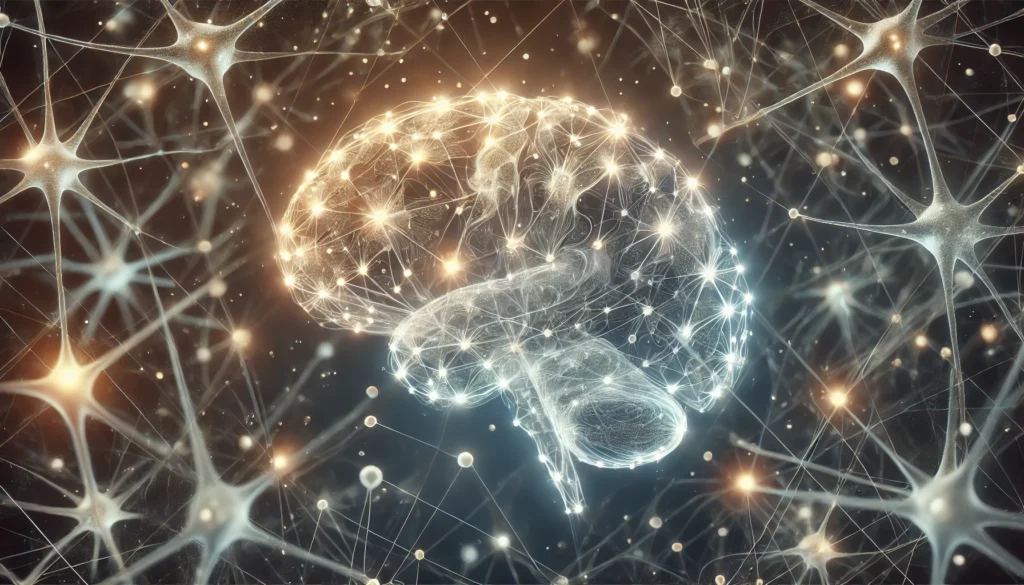Introduction
Many people have experienced moments where their thoughts feel slow, words escape them, and even simple tasks require tremendous effort. In casual conversation, it’s not uncommon to hear someone lament, “My brain is mush.” While often meant figuratively, the phrase captures a genuine neurological experience tied to fatigue, overwhelm, and cognitive dysfunction. Scientifically, this condition is known as cognitive fatigue or brain fog, and it can signal a deeper imbalance in brain function. Understanding the “brain is mush” meaning from a medical and psychological perspective is essential for those who feel they are no longer functioning at their intellectual best.
You may also like: Do Carbs Cause Brain Fog? What Science Reveals About Carbohydrates and Mental Clarity
Mental clarity is critical for daily performance, emotional regulation, and long-term brain health. When this clarity disappears, it often feels as though one’s brain is turning to mush—a vivid and relatable metaphor for losing cognitive sharpness. Whether it’s due to sleep deprivation, excessive stress, hormonal imbalances, nutritional deficiencies, or chronic illness, the sense of having a sluggish, foggy mind can be distressing and debilitating. This article explores what it truly means when your brain feels like it’s turning to mush, the underlying causes, and science-backed ways to reclaim cognitive clarity and mental energy.
We will examine the physiological and neurological mechanisms behind mental burnout, discuss the effects of stress hormones and inflammation on brain health, and provide strategies for recovery that align with the most recent research. If your thoughts feel disjointed, if you’re constantly rereading the same sentence, or if everyday decisions feel overwhelming, you’re not alone—and this comprehensive guide is here to help.

The Brain Is Mush Meaning: More Than Just a Feeling
The phrase “brain is mush” meaning is deeply rooted in the lived experience of mental fatigue. People often use it to describe a state where cognitive function feels compromised—thoughts are slow, memory is patchy, and the ability to concentrate is diminished. From a scientific standpoint, this phrase correlates with what is known as cognitive dysfunction or executive function impairment. These are not vague, subjective experiences—they are measurable disruptions in the brain’s normal functioning.
When someone says their brain is turning to mush, they are likely describing a constellation of symptoms that fall under the umbrella of cognitive fatigue. This includes difficulty processing information, reduced working memory capacity, delayed reaction times, and trouble with problem-solving or decision-making. The feeling is often accompanied by emotional symptoms such as irritability, anxiety, or a sense of detachment from one’s surroundings. It is a mental shutdown that reflects the body’s attempt to cope with overwhelming demand.
This experience may follow periods of intense mental effort, sleep disruption, prolonged stress, or illness. But in some individuals, it becomes chronic, signaling a deeper disruption in the neurochemical and structural integrity of the brain. The brain’s plasticity and capacity for self-repair mean recovery is possible, but first, it’s essential to understand the physiological underpinnings of the problem.

Neurological Underpinnings of Mental Fatigue
When describing the feeling that the brain is turning to mush, many are articulating a breakdown in the brain’s executive systems. These systems are largely governed by the prefrontal cortex, which is responsible for attention, planning, judgment, and impulse control. Under conditions of chronic stress, inflammation, or nutrient depletion, the prefrontal cortex becomes less effective. Meanwhile, the brain’s default mode network (DMN)—responsible for introspection and daydreaming—may become overactive, leading to distraction and a sense of disconnection.
Chronic mental fatigue also involves dysregulation in the brain’s neurotransmitters, particularly dopamine, serotonin, and acetylcholine. Dopamine governs motivation and reward, serotonin influences mood and cognition, and acetylcholine is essential for memory and learning. When these neurotransmitters become imbalanced—whether through chronic stress, inflammation, or poor diet—the brain’s ability to maintain sharpness and coherence declines.
Neuroimaging studies have revealed that individuals experiencing mental fatigue have reduced connectivity in the prefrontal cortex and altered blood flow to critical brain regions. Functional MRI scans often show a dampening of activity in areas responsible for working memory and heightened activation in stress-responsive areas like the amygdala. This imbalance explains why people under chronic pressure may find it difficult to think clearly, even when they appear outwardly calm.
Hormones, Stress, and the Mushy Brain Phenomenon
The brain is not an isolated organ; it operates in a delicate feedback loop with the endocrine system. The hypothalamic-pituitary-adrenal (HPA) axis governs the release of cortisol, the primary stress hormone. Under acute stress, cortisol helps us stay alert and focused. However, when stress becomes chronic, cortisol dysregulation leads to hippocampal atrophy, impaired memory, and emotional instability.
When cortisol is either too high or chronically depleted, the result is often what people describe as “brain turning to mush.” This is because cortisol affects not only energy metabolism but also neurogenesis (the creation of new brain cells), synaptic plasticity (the brain’s ability to adapt), and the balance of other hormones like insulin and thyroid hormones. These cascading effects can impair glucose delivery to the brain, reduce neurotransmitter synthesis, and blunt the brain’s ability to recover from daily demands.
In women, hormonal shifts during menstruation, perimenopause, or menopause can exacerbate this experience. Estrogen has neuroprotective effects and supports synaptic communication in the hippocampus. When estrogen levels decline, cognitive symptoms such as memory lapses, difficulty concentrating, and emotional dysregulation become more common, often contributing to the sense that one’s brain is not working as it should.

Inflammation: A Silent Brain Disruptor
Chronic inflammation is increasingly recognized as a key driver of neurodegeneration and cognitive dysfunction. When people describe their brain as feeling mushy or turning to mush, systemic inflammation may be part of the picture. This inflammation can originate from various sources—poor diet, gut dysbiosis, chronic infections, environmental toxins, or autoimmune conditions.
Pro-inflammatory cytokines such as IL-6, TNF-alpha, and CRP can cross the blood-brain barrier and activate microglial cells, the brain’s immune defenders. When microglia are constantly activated, they begin to damage neurons, disrupt neurotransmitter balance, and inhibit synaptic plasticity. This creates a neurological environment where it is difficult for the brain to focus, remember, or recover from stress.
One of the ways inflammation manifests is through fatigue and fogginess. People may find themselves staring at screens without processing information, repeating tasks, or losing the thread of conversations. These are not signs of laziness or disinterest but biochemical impairments in the brain’s signaling systems. Reducing inflammation through diet, lifestyle, and targeted supplements is crucial to restoring cognitive clarity.
Sleep Deprivation and Brain Drain
Nothing turns a sharp mind into mush faster than inadequate sleep. Sleep is when the brain detoxifies, consolidates memory, and resets emotional regulation. REM sleep, in particular, is essential for creativity, emotional processing, and learning. When sleep is fragmented or insufficient, the glymphatic system—the brain’s waste clearance network—becomes sluggish, allowing neurotoxins to accumulate.
Sleep deprivation impairs glucose metabolism in the frontal cortex, resulting in slower thinking, poor judgment, and impulsivity. In fact, being awake for 20 hours has been shown to impair cognitive performance as much as a blood alcohol level of 0.08%. If someone says their brain is turning to mush after pulling an all-nighter, they are not exaggerating—their brain is operating under metabolic duress.
Sleep disorders such as insomnia, sleep apnea, and circadian rhythm disruptions further contribute to chronic cognitive fog. These conditions interrupt the restorative processes that the brain relies on to function optimally. Addressing sleep health is therefore one of the most powerful ways to reverse the sensation of a mushy brain.
Nutrition and the Cognitive Collapse
The brain accounts for just 2% of body weight but consumes over 20% of the body’s energy. This energy is derived primarily from glucose and, to a lesser extent, ketones and fatty acids. When the brain does not receive adequate nutrition—either due to poor diet or impaired absorption—it cannot maintain normal cognitive function.
Key nutrients that support brain health include omega-3 fatty acids, B vitamins (especially B6, B9, and B12), magnesium, zinc, iron, and antioxidants such as vitamins C and E. Deficiencies in any of these can lead to symptoms like memory lapses, attention deficits, irritability, and mental fatigue—all of which contribute to the sensation that one’s brain is turning to mush.
Moreover, diets high in refined sugars and inflammatory fats exacerbate insulin resistance, a condition where cells become less responsive to insulin. Since the brain depends on insulin for glucose uptake, insulin resistance can lead to energy deficits in the brain, resulting in foggy thinking and poor memory.
Digital Overload and Cognitive Fragmentation
In today’s hyperconnected world, the human brain is bombarded with information. Between emails, social media, notifications, and endless to-do lists, the cognitive load has never been higher. This digital barrage fragments attention and impairs the brain’s ability to engage in deep, focused thought.
The term “brain is turning to mush” may be particularly apt in this context, as constant multitasking reduces gray matter in the anterior cingulate cortex, the area involved in decision-making and impulse control. Furthermore, it weakens the brain’s default mode network, which is essential for introspection and long-term planning.
People who constantly switch tasks are more likely to make errors, retain less information, and feel mentally drained. Over time, this can lead to digital burnout—a condition characterized by apathy, low motivation, and the classic sensation of mental mushiness.
Long COVID, Chronic Illness, and Brain Fog
Emerging evidence shows that individuals with long COVID or other chronic illnesses often experience persistent brain fog, fatigue, and memory difficulties. These conditions reflect immune dysregulation, vascular inflammation, and mitochondrial dysfunction—each of which impairs the brain’s ability to operate normally.
Patients frequently describe their brain as turning to mush after minimal exertion. Tasks that once seemed simple become exhausting. This phenomenon, known as post-exertional malaise, is a hallmark of myalgic encephalomyelitis/chronic fatigue syndrome (ME/CFS) and post-viral syndromes. It is not psychological; it is physiological and requires a nuanced treatment approach.
Addressing the underlying infection, supporting mitochondrial function, managing inflammation, and restoring sleep can improve symptoms. But it takes time, and individuals need validation and personalized care to navigate the process.

Mind-Body Disconnection and Cognitive Dissociation
The experience of a mushy brain is not purely physical—it also involves the emotional and psychological layers of human experience. Chronic stress, trauma, and emotional suppression can lead to dissociation, a protective mechanism where the brain distances itself from overwhelming stimuli. While dissociation serves a survival purpose, it also reduces the brain’s capacity for coherent thought and emotional regulation.
People experiencing dissociation may describe a sense of detachment from reality, difficulty focusing, or emotional numbness. These symptoms often accompany burnout, depression, or anxiety. They are also common in those with a history of childhood trauma or chronic emotional stress.
Healing the mind-body connection through somatic therapy, mindfulness, breathwork, and trauma-informed care can help re-integrate fragmented cognitive and emotional experiences. This process fosters not just clarity of mind, but a deeper sense of embodiment and resilience.
Strategies for Reclaiming Cognitive Clarity
When your brain feels like it’s turning to mush, there are tangible steps you can take to reverse the process. Begin with sleep hygiene—establish a consistent bedtime, limit screen exposure at night, and create a calm sleep environment. Prioritize restorative sleep as a non-negotiable pillar of health.
Address nutritional gaps by consuming a diet rich in whole foods, healthy fats, lean protein, and diverse plant-based fiber. Consider supplementing with magnesium, omega-3s, and B vitamins under medical guidance. Test for deficiencies if symptoms persist.
Reduce digital overload by setting screen boundaries, taking tech-free breaks, and practicing single-tasking. Your brain needs uninterrupted time to think, integrate, and create.
Engage in regular physical movement to support circulation, lymphatic flow, and neurotransmitter balance. Exercise increases BDNF (brain-derived neurotrophic factor), a molecule that supports neuroplasticity and mental resilience.
Practice stress management through meditation, journaling, breathwork, or nature immersion. Restore the HPA axis and reduce inflammatory signaling by making stress reduction a daily priority.
Seek medical evaluation for persistent symptoms. Cognitive fog may be a sign of thyroid dysfunction, sleep apnea, chronic infection, or neurological disease. Early intervention improves outcomes.
Ultimately, reclaiming your brain is an act of self-respect. You deserve to think clearly, feel deeply, and live fully.
Frequently Asked Questions
1. What is the meaning of “brain is mush”?
The phrase “brain is mush” meaning refers to a state of mental fatigue, confusion, and cognitive slowdown. It’s a metaphor people use when they feel mentally exhausted, unfocused, or unable to think clearly. Scientifically, this state corresponds with impaired executive function, neurotransmitter imbalance, and possibly neuroinflammation. It’s more than just a figure of speech—it’s a genuine signal from the brain that its systems are overwhelmed or depleted.
2. Why does it feel like my brain is turning to mush?
Many factors can contribute to the sensation that your brain is turning to mush, including chronic stress, sleep deprivation, poor diet, hormonal changes, and inflammation. When these stressors impair the function of brain regions like the prefrontal cortex or hippocampus, cognitive symptoms emerge. These symptoms might include poor memory, slow thinking, emotional dysregulation, and disorientation. Understanding and addressing the root cause is key to reversing these feelings.
3. Can a poor diet cause my brain to feel foggy or mushy?
Yes, nutrition plays a fundamental role in brain health. A diet low in essential nutrients like omega-3s, B vitamins, magnesium, and antioxidants can impair neurotransmitter function and increase inflammation. Similarly, diets high in processed sugar and trans fats can lead to insulin resistance, depriving the brain of its main fuel. These imbalances can make the brain feel sluggish, unfocused, or foggy. Improving nutrition is a powerful step toward cognitive clarity.
4. Is feeling like my brain is mush a sign of burnout?
Absolutely. One of the most common symptoms of burnout is cognitive fatigue—feeling mentally drained, forgetful, or emotionally numb. Burnout often affects professionals, caregivers, and students under prolonged pressure. It results from chronic activation of the stress response, depleting the brain’s resources. If your brain feels like mush and you’ve been under intense demand without adequate rest or recovery, burnout may be the cause.
5. How is sleep connected to brain fog and cognitive fatigue?
Sleep is essential for memory consolidation, synaptic pruning, and emotional regulation. When sleep is inadequate, the brain cannot clear waste products, balance hormones, or restore neurotransmitter levels. This leads to symptoms like confusion, poor concentration, irritability, and mental sluggishness. People who experience fragmented or poor-quality sleep often describe their brain as feeling like it’s turning to mush, especially during the day.
6. Can chronic illness make my brain feel like mush?
Yes. Chronic illnesses such as fibromyalgia, autoimmune conditions, Lyme disease, and long COVID often include symptoms of cognitive dysfunction. These conditions involve systemic inflammation, mitochondrial dysfunction, and hormonal imbalance—all of which impair brain function. The sensation of having a mushy or foggy brain is common among those managing long-term health conditions, and addressing the underlying illness can often improve mental clarity.
7. What role does stress play in brain fog?
Stress affects every system in the body, including the brain. High levels of cortisol—the primary stress hormone—can impair memory, reduce focus, and shrink brain regions like the hippocampus. Chronic stress also leads to neurotransmitter imbalances and increased inflammation. If you frequently feel that your brain is turning to mush during stressful periods, it’s likely due to these physiological changes. Managing stress is essential to restoring cognitive function.
8. Are there medical conditions that mimic the mushy brain feeling?
Several medical conditions can mimic or contribute to the sensation of a mushy brain. These include hypothyroidism, anemia, sleep apnea, insulin resistance, and early-onset neurodegenerative disorders. Nutrient deficiencies such as low B12, vitamin D, or iron can also impair cognition. If brain fog persists despite lifestyle changes, it’s important to consult a healthcare provider for proper diagnosis and treatment.
9. How can I recover when my brain feels like mush?
Recovery starts with identifying the cause—whether it’s stress, sleep, nutrition, hormones, or a chronic condition. Then, take targeted action: prioritize quality sleep, eat a nutrient-dense diet, manage stress through mindfulness, exercise regularly, and consider supplements if necessary. Seek medical evaluation if symptoms persist. With the right support and strategies, most people can reclaim mental clarity and reverse the effects of cognitive fatigue.
10. When should I worry about my brain fog or mushy brain feeling?
If the sensation of your brain turning to mush becomes persistent, worsens over time, or interferes with work, relationships, or safety, it’s time to seek help. Warning signs include forgetfulness, frequent word-finding difficulty, sudden changes in mood or personality, and physical symptoms like numbness or headaches. Early evaluation allows for early intervention and better outcomes. Trust your instincts—your brain’s distress is a call to action.

Conclusion
The sensation of your brain turning to mush is not just a colorful expression—it’s a legitimate physiological and psychological experience. Understanding the brain is mush meaning helps validate the challenges faced by millions and provides a roadmap for healing. Whether your cognitive fog stems from stress, sleep deprivation, inflammation, poor diet, or underlying illness, there are actionable steps you can take to regain clarity and strength.
The modern world places unprecedented demands on the brain, and without proper care, even the sharpest mind can begin to falter. But recovery is not only possible—it’s within reach. By addressing root causes, restoring balance, and nurturing your cognitive ecosystem, you can move from a place of mental mushiness to one of resilience, clarity, and vitality.
Don’t ignore what your mind and body are trying to tell you. The brain is your most vital asset. Protect it, nourish it, and trust that with the right tools, you can reclaim the clarity you once had—and perhaps discover an even stronger version of yourself in the process.
Was this article helpful? Don’t let it stop with you. Share it right now with someone who needs to see it—whether it’s a friend, a colleague, or your whole network. And if staying ahead on this topic matters to you, subscribe to this publication for the most up-to-date information. You’ll get the latest insights delivered straight to you—no searching, no missing out.
Further Reading:
Metabolic Confusion Diet Plan: How to Boost Fat Loss With Science
How to Increase Metabolism: Scientific Ways to Boost BMR and Burn More Energy



